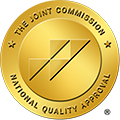As more states legalize marijuana for medical and recreational use, the implications of its use and misuse have become more evident. While some people use marijuana without obvious issues, others become physically and psychologically dependent on tetrahydrocannabinol, the primary psychoactive component found in cannabis.
Understanding THC and Its Addictive Potential
THC works by binding to cannabinoid receptors in the brain, which are part of the endocannabinoid system. When THC activates these receptors, it alters normal brain communication, leading to the drug’s characteristic euphoria. Regular THC use can cause you to develop a tolerance, which means you will need increasingly higher doses to achieve the same effects.
THC’s addictive potential stems from its ability to induce pleasurable feelings. Regular interference with the brain’s reward system compels people to continue using marijuana to feel happy and well-adjusted.
Physical and Psychological Aspects of THC Addiction
While THC is not as physically addictive as substances like nicotine or opioids, you may still experience uncomfortable side effects when you quit using marijuana or scale back your use. These include:
- Changes in appetite
- Mild nausea
- Restlessness
- Sleep disturbances, including insomnia
- Physical discomfort
THC withdrawal can also be psychologically challenging, causing symptoms like these.
- Irritability
- Anxiety
- Mood swings
- Depressive symptoms
- Cravings for marijuana
- Decreased motivation
Withdrawal makes it hard to stop using marijuana, especially if you typically use cannabis to cope with underlying issues such as anxiety or stress.
The Benefits of Outpatient Detox
Acworth Outpatient Detox provides a structured, flexible approach to overcoming THC dependency. Unlike an inpatient program, it lets you continue living at home while you pursue recovery.
- Flexibility and convenience: Outpatient detox integrates into your daily life without waiting for a bed to become available at a facility. You can receive the treatment you need without disrupting your work, school, or family responsibilities.
- Symptom management: Our providers will work closely with you to make your detox experience as comfortable as possible. We’ll assess your progress through continuous check-ins, adjusting your medications as needed.
- Behavioral therapy: We provide our clients with evidence-based substance abuse counseling. You will meet weekly with a therapist in private sessions, where you can discuss the triggers of drug use, practical coping strategies, and behavioral changes that lead to long-term sobriety.
- Case management: We equip you with the knowledge and resources you need to maintain a healthy, substance-free lifestyle. As you recover, your case manager will help you address underlying health problems, put you in touch with 12-step resources, and give you relapse prevention advice.
Help for Addiction in Georgia
Detoxing from THC empowers you to regain control over your life and health. While the process has ups and downs, our outpatient detox program puts your goals within reach by providing medical guidance, professional counseling, and a personalized treatment program. If you need a guide to recovery, we’re only a phone call away.






